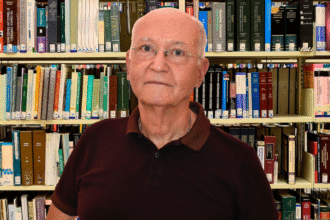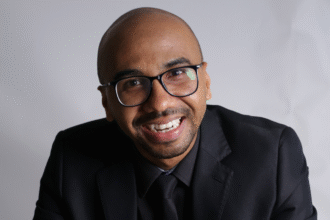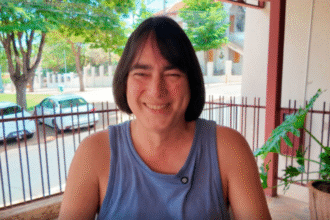Felipe Barretto, aged 14, discovered that his anxieties and problems at school had a name: giftedness. Now, his mother, Claudia Tozzini Barretto, shares this journey in the book “Ele é Superdotado, e daí?”. The work addresses the difficulties faced by young people, such as bullying and misunderstanding, and offers support to parents, educators and health professionals who live with gifted people.
In addition to personal experience, the book presents technical and conceptual aspects of giftedness, highlighting the importance of rethinking the school environment and promoting social and educational changes. With a preface by Maria Helena Oliveira and an afterword by Maria Lúcia Sabatella, the work aims to broaden the discussion and awaken a new look at differentiated learning.
Claudia, translator and writer, also shares articles on giftedness, female empowerment and reviews of various books on her blog. Her work seeks not only to inform, but also to inspire and promote reflection on relevant topics. “He’s Gifted, so what?” is an essential work for anyone seeking to understand and support gifted people in their journey of growth and formation.
How did the idea of writing the book “Ele é Superdotado, so what?” and what was his motivation for sharing his son Felipe’s experience?
Initially, I had no intention of writing a book. I started writing down everything that happened to my son at school so as not to forget the events, which were frequent and intense. When I had a decent amount of information, my daughter commented that I could write a book as there were so many records. So she awakened the desire to tell our story.
The motivation wasexposing the difficulties faced by Felipe throughout his school life and, at the same time, highlighting the great fragility of our educational system, the considerable unpreparedness of many educators and, furthermore, the resistance that these professionals have when dealing with children and young people people with giftedness/high abilities.
What were the main challenges Felipe faced at school and how did you deal with these difficulties?
The main challenge was the educators’ lack of understanding and knowledge. Felipe was identified as having high abilities when he was 14 years old – before that, he was labeled by the schools he went to as agitated and even hyperactive, a condition discarded by doctors.
As the teachers did not know how to deal with his curiosity, vivacity and agitation, they said he was a problem child. At no time was the hypothesis of just being a gifted child experiencing and exploring their own creativity raised. This happened at the four schools he attended: we had to change schools in the hope of finding a place that could accommodate my son and where he could fully develop his abilities.
It is important to emphasize that a gifted person is above average in relation to some relevant skill that he develops, but this does not necessarily mean that he has an exemplary academic performance in all subjects or even that he is brilliant in everything he does. Most of the time, we try to dialogue with the schools, asking for their understanding and support, but our battle was great and all the examples served so that I could write the book.
In addition to the personal narrative, the book also addresses technical aspects of giftedness. How was the research and what was the importance of bringing this information to the public?
I didn’t just want to write an autobiographical story, but also contextualize what I was bringing to the audience. Our story is the background for the narrative as a whole, but it was extremely important to offer readers all the practical knowledge of what is exposed. It was a long search.
As soon as the theme entered our lives,I started studying about giftedness/high abilities and I only found books written by specialists, psychologists and scholars in the field.I bought all the books available at the time to understand what we were living, but I didn’tThere was nothing in the literature that told of the hardships of mothers and families who went through the difficulties I went through. From this lack in the market, I decided to write a book telling our story and exploring the aspects involved in the theme, hence the importance of bringing our experience to the public.
With the book, I invite readers to reflect on our current education system, which wastes talent by not considering a differentiated way of learning for gifted children.
You mention in the book the difference between giftedness, genius and precocity. Can you explain these concepts and how they relate?
These terminologies end up popularly mixing. But in fact, they are different concepts. Giftedness is a condition characterized by a great ease in learning. They are people with high potential and great involvement with areas of human action: intellectual, behavioral, psychomotor, artistic and creative. Those with high abilities have a high level of intelligence and have accelerated and advanced development of brain functions.
Many people believe that giftedness is correlated with genius, but this is not the case. Geniuses are those people who leave an undeniable contribution to humanity, which lasts for decades or generations. Geniuses have the ability to break paradigms. Some classic examples of geniuses are: Einstein, Leonardo da Vinci, Mozart and, more recently, Steve Jobs and Bill Gates.
Precocity, on the other hand, is attributed to children, since they are abilities presented prematurely, which does not mean that they will be a guarantee of success in the future: the presented ability is not sustained later. An example of precocity was the American actress Shirley Temple, considered the biggest child star in the 1930s. Thus, giftedness, genius and precocity are variations of the same phenomenon.

What is the importance of identifying giftedness and expanding the discussion on the subject in Brazil? What social and educational changes do you hope to promote with the book?
I believe that identifying giftedness is of paramount importance for children, young people and even adults. People recognize themselves in their specificities and can considerably improve their lives: they begin to better understand how they act and react to various stimuli. And in the case of children, the family plays a fundamental role in this process, since, by understanding their condition, they will be able to help them in their general development.
When I launched the book, my intention was to broaden the dissemination of the theme,to contribute to the awakening of a new look in relation to the differentiated way of learning for gifted children and to combat the adversities of society for those who present a differentiated talent and a superior potential. Thus, through the dissemination of knowledge, we canpromote the necessary changes to improve education in our country.
How would you describe the unpreparedness of the school environment in Brazil to deal with gifted students? What are the main flaws and what can be done to improve this situation?
Unfortunately, giftedness is not seen or recognized in the school environment. I believe there is a lack of professional preparation. I’ve seen some pedagogues and even psychologists mention that they never studied the subject during college. It’s an invisible subject.
How can professionals be expected to know how to deal with students with this condition if they were never prepared for it? Meanwhile, there is a lot of suffering, not only for students, but also for families. For not knowing the subject, professionals in schools end up labeling children with non-existent pathologies. For example, in one of the schools where my son studied, the coordination suggested that he be medicated with psychostimulants to better follow the classes, that is, so that he could be quieter in the school environment.
It would be more appropriate, in the first place, for schools to seek to improve themselves and for professionals to be properly trained to deal with these children and young people. This would already be a big step towards improving the situation and helping so many invisible people in their condition.
How has the public received the book, especially parents, educators and health professionals? What are the main feedbacks you have received so far?
The book was very well received, I confess that it exceeded my expectations. I constantly receive messages from readers, mostly mothers and fathers, telling how much they identified with the story. I can see how excited they are to meet people who have gone through the same problems they have.
It is very nice to be able to feel the affection of the people who read the book and I see that many of them recommend it to other mothers who are going through the same problems. As a result, I have already met several readers, from various regions of Brazil, who come to me to give testimonials and tell how important the work was for them to feel welcomed, recognized and represented in their anxieties. It is very beautiful to see that empathy brings people together. I am very happy with this move.
In addition to the book, you also have a blog where you write about giftedness and other topics. How did the idea for the blog come about and what is the main purpose of sharing this content?
The blog appeared a few years after the book, as I felt the need to write and share with readers everything I experienced and witnessed. The creation of the blog was a way of transmitting and perpetuating my experiences: with it, I realize that I encourage people to seek validation for their own stories. I believe that this is a possible and ideal path of achievement.
What are your future plans as a writer and how do you intend to continue contributing to the discussion about giftedness and other relevant issues?
I believe that my book helped a lot of people and was an incredible contribution to the topic. I have even received several feedbacks reinforcing how much the book helped in understanding what high skills are. Lately, giftedness has been more publicized in the country. Thematic growth is clear.
I still contribute when I participate in lives, workshops and meetings to talk about my experience. I have already been invited to record classes and to participate in other books as a co-author, always within the same theme. It is a way of intensifying the relevance of the subject and, as long as I can, I will continue to publicize and reinforce the importance of giftedness.
Follow Claudia Tozzini Barreto on Instagram





